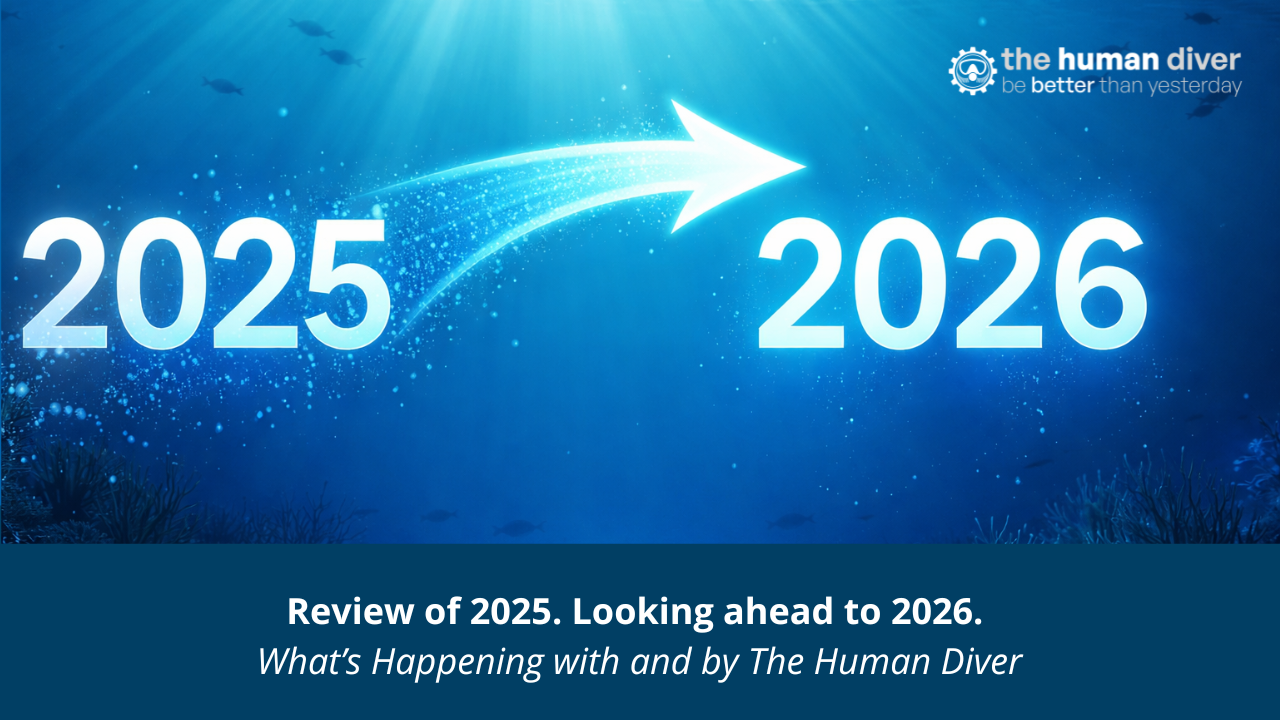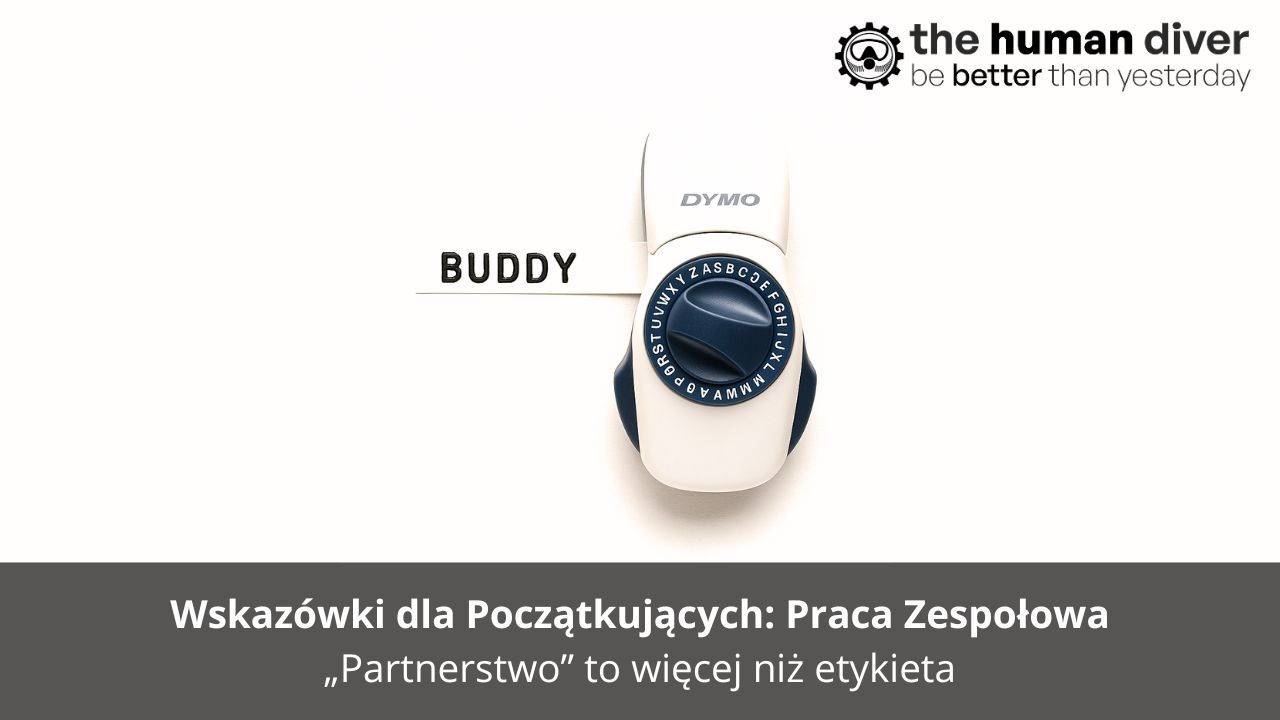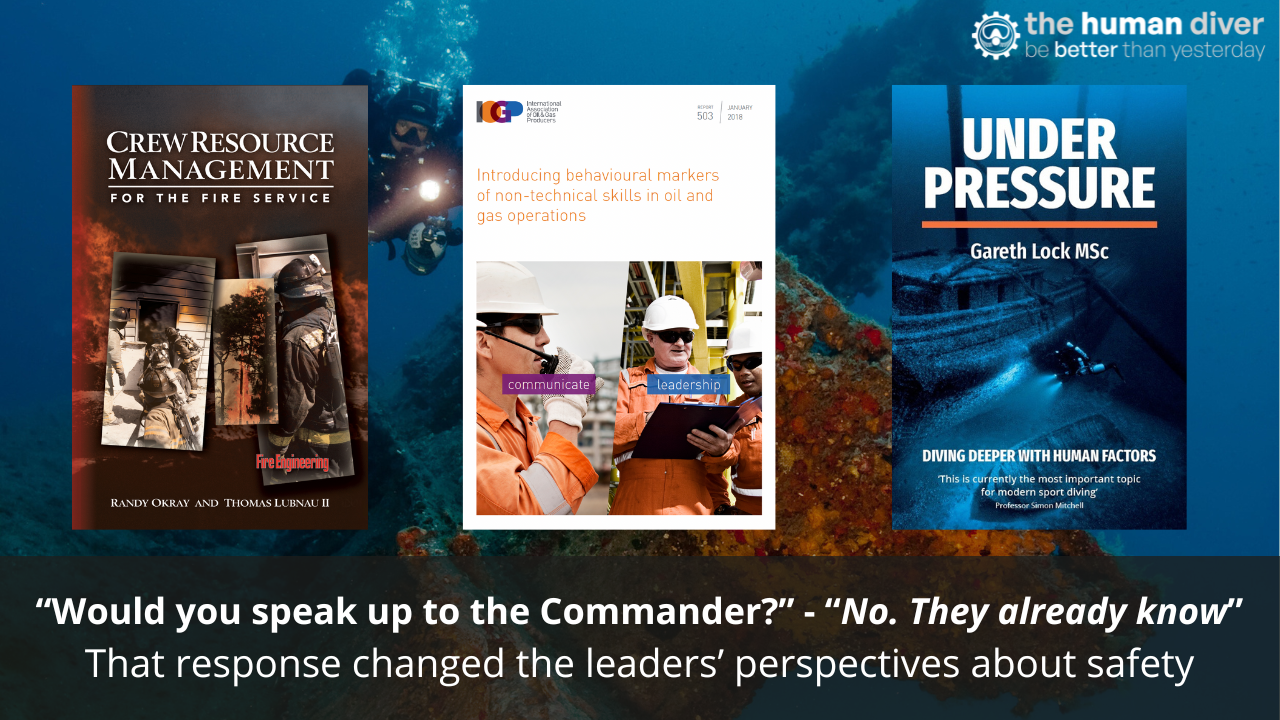
Leadership in a Short Term Team
Nov 15, 2023In this blog last week I spoke about teamwork and how it applies to us as divers. This week, I’d like to dig into how that means some of us are required to be leaders. Aside from Divemasters and Instructors, the idea of being a leader as a diver might seem strange, but that depends on your definition of a leader. If you consider it to be someone helping people to reach a goal, it makes more sense. This means the leader isn’t necessarily the boss. The job of a leader in a casual or short-term team is to keep an eye on the whole situation. The best leaders are people who don’t let themselves get sucked in and can maintain an overview. As with any team member, a leader needs to have good communication skills. That doesn’t mean, however, that theirs is the only voice that is heard; in fact, during a regular dive a good leader can step back and allow others to run things, giving the leader the chance to oversee everything without being distracted.
A few years ago I was guiding a group of divers on a deep dive to a local site. It was their first time there. They were a mix of experienced divers and fairly newly qualified ones. Their instructor was with them but was unfamiliar with the site. In this situation, the instructor was the leader. I was just there to show them where to go. We agreed that I would be at the front and the instructor would be at the back, where he could easily see the whole group. At our deepest point, one of the divers was clearly not happy, almost close to panic. The instructor could see this and quickly moved to a position close to that diver in order to help calm them down. It took me a little longer to see what had happened, positioned as I was with my back to the group. As something had changed, I now asked the leader what he wanted to do. On his decision, we shallowed up and the diver with him visibly calmed down and indicated they wanted to continue the dive. The instructor could now move back to his position overseeing the whole group. In this way you can see how the guide isn’t always the leader.

Let’s say you find yourself on a dive boat, buddied up with a fairly newly qualified open-water diver. You are a rescue diver with a few hundred dives under your belt. The divemaster on board gives the briefing and will be following a set profile and route, although it isn’t required that you stay with him, so long as you are with your buddy. At this point, a leader should be finding out and communicating the goals for the dive. Does your buddy just want to explore? Is there a particular feature (fish/wreck/drop off/swim through etc) that they wanted to see? How about yourself? Why are you doing this dive? Once you have found out each other's goals (and made sure they are compatible), you can make a plan as a buddy pair. This might be the decision to stick with the guide or go elsewhere. As a leader, you should be thinking about how feasible the plan is. Once in the water, your buddy might be in charge of navigating, leaving you with capacity to be watching and making sure they are checking their own gas frequently, as well as double checking you are following the planned route.
If you had been paired up with a photographer, then it is likely they will get task-focused at some point during the dive. So as a leader, you will be need to be a little more hands on, perhaps reminding them to chek their gas if you haven’t seen them do it, or focusing more on navigation. Specialists in teams, ie people who have a specific role such as photographers, tend to need to focus more on their task, and need to be given the freedom to do that. This means being aware as the leader that your job is to know that they may not have great situational awareness and you will need to consider any aspects that may affect the specialist, as well as yourself and the rest of the team.
Summary
Good leaders and good followers exhibit much of the same behaviour. The difference is generally situational; one is required to have a full oversight of everything going on, the other can be more immersed in it. As I mentioned in the previous blog, two of the most important skills are communication and trust. Building trust as a leader means developing psychological safety (more about that in these blogs: Building Psychological Safety Part 1, Part 2, Part 3, Part 4). In a short term team this is tricky but as always a good briefing (or post-briefing chat if someone else has given the brief) can help set the tone, along with a debrief after the dive to discuss what went well and what can be done differently.

Jenny is a full-time technical diving instructor and safety diver. Prior to diving, she worked in outdoor education for 10 years teaching rock climbing, white water kayaking and canoeing, sailing, skiing, caving and cycling, among other sports. Her interest in team development started with outdoor education, using it as a tool to help people learn more about communication, planning and teamwork.
Since 2009 she has lived in Dahab, Egypt teaching SCUBA diving. She is now a technical instructor trainer for TDI, advanced trimix instructor, advanced mixed gas CCR diver and helitrox CCR instructor.
Jenny has supported a number of deep dives as part of H2O divers dive team and works as a safety diver in the media industry.
If you'd like to deepen your diving experience, consider taking the online introduction course which will change your attitude towards diving because safety is your perception, visit the website.
Want to learn more about this article or have questions? Contact us.










